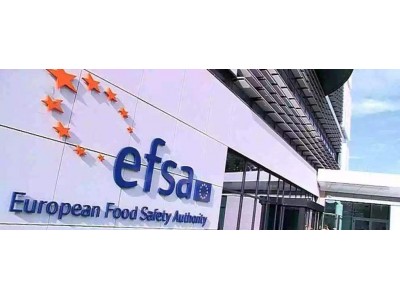гҖҖгҖҖжҚ®дәҶи§ЈпјҢиҝҷз§ҚйЈҹе“Ғй…¶жҳҜз”°ьa href='//www.sqrdapp.com/news/tag_2434.html' class='zdbq' title='иҪ¬еҹәеӣ зӣёе…ійЈҹе“Ғиө„и®? target='_blank'>иҪ¬еҹәеӣҹь/a>
жһҜиҚүиҠҪеӯўжқҶиҸҢиҸҢж ӘAR-453з”ҹдә§зҡ„пјҢж—ЁеңЁз”ЁдәҺзғҳз„ҷиҝҮзЁӢгҖҒь/div>
гҖҖгҖҖз»ҸиҝҮиҜ„дј°пјҢ专家е°Ҹз»„и®ӨдёәпјҢеңЁйў„жңҹзҡ„дҪҝз”ЁжқЎд»¶дёӢпјҢдёҚиғҪжҺ’йҷӨйҘ®йЈҹжҡҙйңІеј•иө·иҝҮж•Ҹе’ҢиҜұеҸ‘еҸҚеә”зҡ„йЈҺйҷ©пјҢдҪҶиҝҷз§Қжғ…еҶөеҸ‘з”ҹзҡ„еҸҜиғҪжҖ§еҫҲдҪҺгҖӮж №жҚ®жүҖжҸҗдҫӣзҡ„ж•°жҚ®пјҢиҜ„дј°е°Ҹз»„еҫ—еҮәз»“и®әпјҢиҝҷз§ҚйЈҹе“Ғй…¶еңЁйў„жңҹдҪҝз”ЁжқЎд»¶дёӢдёҚдјҡеј•иө·е®үе…Ёй—®йўҳгҖӮйғЁеҲҶеҺҹж–ҮжҠҘйҒ“еҰӮдёӢпјҡ
гҖҖгҖҖThe food enzyme glucan-1,4-ҰБ-maltohydrolase (4-ҰБ-d-glucan ҰБ-maltohydrolase; EC 3.2.1.133) is produced with the genetically modified Bacillus subtilis strain AR-453 by AB Enzymes GmbH. The genetic modifications do not give rise to safety concerns. The food enzyme is free from viable cells of the production organism and its DNA. It is intended to be used in baking processes. Dietary exposure was estimated to be up to 0.262 mg TOS/kg body weight per day in European populations. As the production strain of B. subtilis strain AR-453 qualifies for the qualified presumption of safety (QPS) approach to safety assessment and no issue of co
ncern arose from the production process, no toxicological data were required. A search for the similarity of the amino acid sequence of the food enzyme to known allergens was made and six matches were found. The Panel co
nsidered that, under the intended co
nditions of use, the risk of allergic reactions by dietary exposure cannot be excluded, but the likelihood is low. ba
sed on the data provided, the Panel co
ncluded that this food enzyme does not give rise to safety co
ncerns under the intended co
nditions of use.
гҖҖгҖҖ
жң¬ж–Үз”ұйЈҹе“ҒдјҷдјҙзҪ‘йЈҹе“Ғиө„и®Ҝдёӯеҝғзј–иҫ‘пјҢжңүд»»дҪ•з–‘й—®пјҢиҜ·иҒ”зі»news@www.sqrdapp.comгҖҒь/span>
зӣёе…іж”ҝзӯ–и§ЈиҜ»











 ең°еҢәпјҷь/font>
ең°еҢәпјҷь/font>

 欧зӣҹиҜ„дј°иҪ¬еҹәеӣ зҺүзұіMO
欧зӣҹиҜ„дј°иҪ¬еҹәеӣ зҺүзұіMO
 欧зӣҹиҜ„дј°дёҖз§ҚйәҰиҠҪзі–ж·Җ
欧зӣҹиҜ„дј°дёҖз§ҚйәҰиҠҪзі–ж·Җ зҫҺеӣҪжӢҹж’Өй”ҖиӢҘе№ІиӮүзұ»еҸүь/a>
зҫҺеӣҪжӢҹж’Өй”ҖиӢҘе№ІиӮүзұ»еҸүь/a> йІҒе…¬зҪ‘е®үеӨ 37060202000128еҸ¶ь/a>
йІҒе…¬зҪ‘е®үеӨ 37060202000128еҸ¶ь/a>



